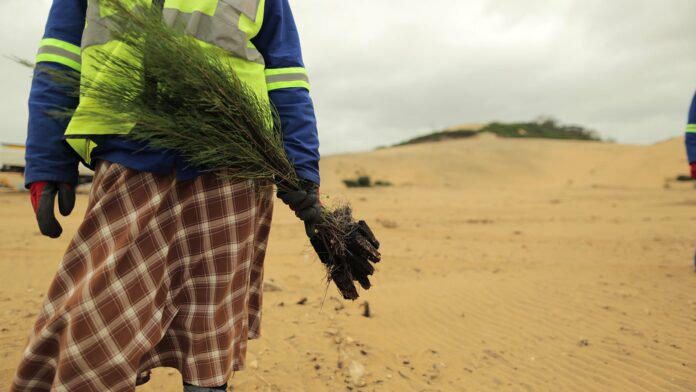
THE force majeure on customer contracts at Richards Bay Minerals (RBM) had been lifted following the suspension of operations last year amid violent protests.
“This marks an important moment in RBM’s recovery since the halt in operations last year,” said Sinead Kaufman, CEO of Minerals at Rio Tinto, the Australian miner which has an 74% stake in RBM. “We must all remain vigilant and continue to strengthen our partnership with government and community stakeholders.”
Rio Tinto stopped mining at RBM on June 30 following a build up of incidents which included the murder of the company’s GM Nico Swart in May, 2021.
The factors behind the violence are complex but they relate to job availability for communities and the release of funds to local trusts which had been withheld owing to a lack of transparency, according to reports.
RBM has also agreed to reserve at least 40% of the currently available general worker jobs for members of the Sokhulu community near the mine, with an ultimate target of reserving some 50% of jobs, reports said.
Rio Tinto agreed to release R130m to the trusts at the time of the resumption of mining at RBM in August. The reopening of the mine also came amid a flurry of high level talks involving Rio Tinto CEO Jakob Stausholm and South African president, Cyril Ramaphosa.
It’s unknown how the community violence will affect the long-term prospects of RBM’s Zulti South project, however. RBM’s Werner Duvenhage said in the past that the facility could close by 2030 if a decision was not made on the $463m expansion.
Rio Tinto has said in the past the Zulti South project was on full suspension since the security and community issues beginning in 2019.
RBM employs about 5,000 workers and exports titanium dioxide slag used to create ingredients for products including paint, plastics, sunscreen, and toothpaste.











